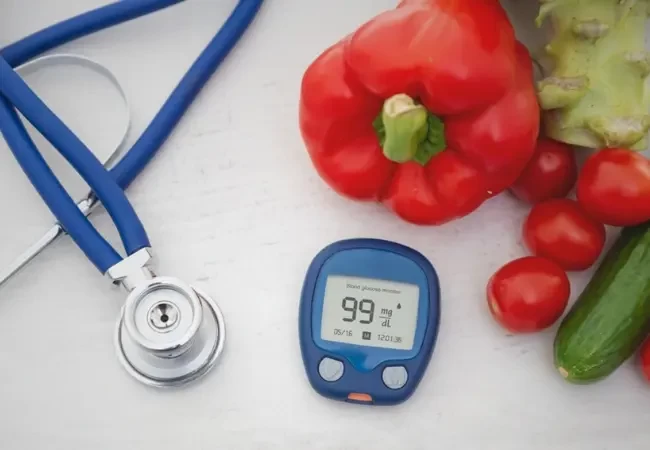Blog
PCOS
(Polycystic Ovary
Syndrome)

PCOS and Hormonal Harmony: Managing Your Health with Confidence
PCOS is a more prevalent condition than commonly perceived, affecting a significant portion of women worldwide, ranging from 5% to 20% of those between 15 and 49 years of age. It is important to recognize that PCOS extends beyond being solely a gynecological concern; it is a metabolic syndrome characterized by elevated androgen levels (male hormones), menstrual irregularities, and insulin resistance. The symptoms of PCOS can vary widely and may even overlap with other medical conditions.
Being a heterogeneous syndrome, PCOS manifests differently in each patient. The symptoms experienced by one individual with PCOS may differ from those of another. In this blog, we will explore the various types of PCOS, its symptoms, root causes, risk factors, and provide comprehensive information to improve your understanding of the condition.
Types of PCOS
By considering different symptoms, laboratory tests, and ultrasound findings, PCOS can be classified into four types: A, B, C, and D, each representing a different level of severity.
- Type A PCOS
Type A PCOS is the most severe form, with a combination of all symptoms. Women with type A PCOS experience excessive hair growth and irregular menstrual cycles. They also exhibit increased levels of male hormones. Ultrasound examinations reveal an elevated number of follicles in the abdomen and increased ovarian volume, indicating a more pronounced manifestation of the syndrome.
- Type B PCOS
It primarily involves abnormalities in menstrual patterns and male hormone levels. Women with this type experience irregular periods and may have elevated androgen levels.
- Type C PCOS
Type C PCOS is characterized by abnormalities detected through ultrasound examinations and elevated male hormone levels. Women with this type may have increased follicles and ovarian volume.
- Type D PCOS
This represents the least severe form. Women with type D PCOS primarily experience irregular periods, while ultrasound findings do not indicate a significant increase in follicle number or ovarian volume.
Root causes of PCOS
The root causes of PCOS are multifactorial and can be attributed to a combination of genetic, environmental, and lifestyle factors. While it is difficult to pinpoint a single cause, research suggests that genetics play a role as we inherit certain genes from our parents that contribute to the development of PCOS. Additionally, the way we are brought up in childhood, including dietary habits and lifestyle factors, can contribute to the development of the condition.
Environmental factors also play a role in PCOS. Endocrine disruptors, which are chemicals found in various sources such as plastics and food, can interfere with hormonal balance and potentially contribute to the development of PCOS. All these factors play together to result in increased insuline resistance, which is again manifested in different forms.
While PCOS cannot be completely cured, there is hope in managing its symptoms, particularly when considering the long-term implications of the condition. Addressing fertility concerns, which are often a significant aspect of PCOS, can be a focus of treatment.
Does PCOS makes you infertile?
PCOS does not necessarily make all women infertile. While some women with PCOS may face difficulties conceiving, it is important to note that not all women with the condition are unable to get pregnant. PCOS exists on a spectrum, ranging from mild to severe forms, and the impact on fertility can vary. In cases of severe PCOS, where fertility challenges are more pronounced, there are various interventions available to help improve the chances of conception. Weight loss is one such intervention that can have a positive impact on fertility. Simple lifestyle modifications, including a healthy diet and regular exercise, can contribute to weight loss and increase the likelihood of getting pregnant.
In addition to weight loss, there are medications available that can assist with fertility. These medications are generally safe and can help regulate ovulation, increasing the chances of successful conception.
For individuals with more severe forms of PCOS who require additional assistance, advanced reproductive technologies such as injections and in-vitro fertilization (IVF) can be options to explore. These procedures can help overcome specific fertility challenges associated with PCOS.
Which diet is important for PCOS?
Ultimately, weight loss is crucial for managing PCOS effectively. By cutting down calorie intake and increasing energy expenditure through moderate-to-intense exercise, significant improvements can be achieved. Professional dieticians can guide individuals with various interventions to reduce calorie intake, while incorporating moderate-to-intense exercise can aid in weight loss of 5% to 10%. This can go a long way in reducing the symptoms and complications associated with PCOS.
When to consult a doctor?
PCOS symptoms encompass a spectrum of severity, including irregular periods, increased hair growth, and laboratory abnormalities. It's important to understand that not every instance of missing a single period is considered abnormal, as various stressors or other factors can cause occasional menstrual irregularities. However, prolonged abnormalities in menstrual patterns, such as not having periods for 3 to 6 months, having them once every 3 to 6 months, or experiencing less than 8 periods per year, should be a cause for concern and warrant consultation.
PCOS is not solely limited to irregular periods, hormonal imbalances, or fertility-related issues. It is a complex condition influenced by lifestyle factors, and its implications extend to future generations. Women with PCOS face an increased risk of cardiovascular problems, highlighting the need to address the condition comprehensively. This entails lifestyle modifications, management of hormonal irregularities, addressing fertility concerns, and reducing cardiovascular risks. Given the multifaceted nature of PCOS, seeking assistance from an Endocrinologist, who specializes in hormone-related disorders, is advisable for optimal management and comprehensive care.

More Blogs
-

Struggling with Erection or Early Ejaculation? Here's How to Get Help
Struggling with erectile dysfunction or premature ejaculation? Learn common causes, treatments, and how to seek professional help with confidence.
-

When Should Diabetics Eat? Expert Tips on Meal Timing and Blood Sugar Control
Learn how diabetics can optimize meal timing to better control blood sugar. Expert tips for healthier, more balanced living.
-

Facing the Fear: Understanding Psychological Erectile Dysfunction Before Marriage
Discover the causes and solutions for psychological erectile dysfunction before marriage. Gain insight, support, and confidence for a healthy relationship.
-

Why Overweight Individuals Should Embrace Early Dinners
Ready to lose weight smarter? See why early dinners are a game-changer for overweight individuals aiming for lasting health and weight control.
-

Overweight? Start with This One Powerful Lifestyle Change
Struggling with weight? Most of us eat our heaviest meal of the day at night, usually after 9 or even 10 PM.


 Home
Home  Booking
Booking
 Chat Now
Chat Now  Call Us
Call Us